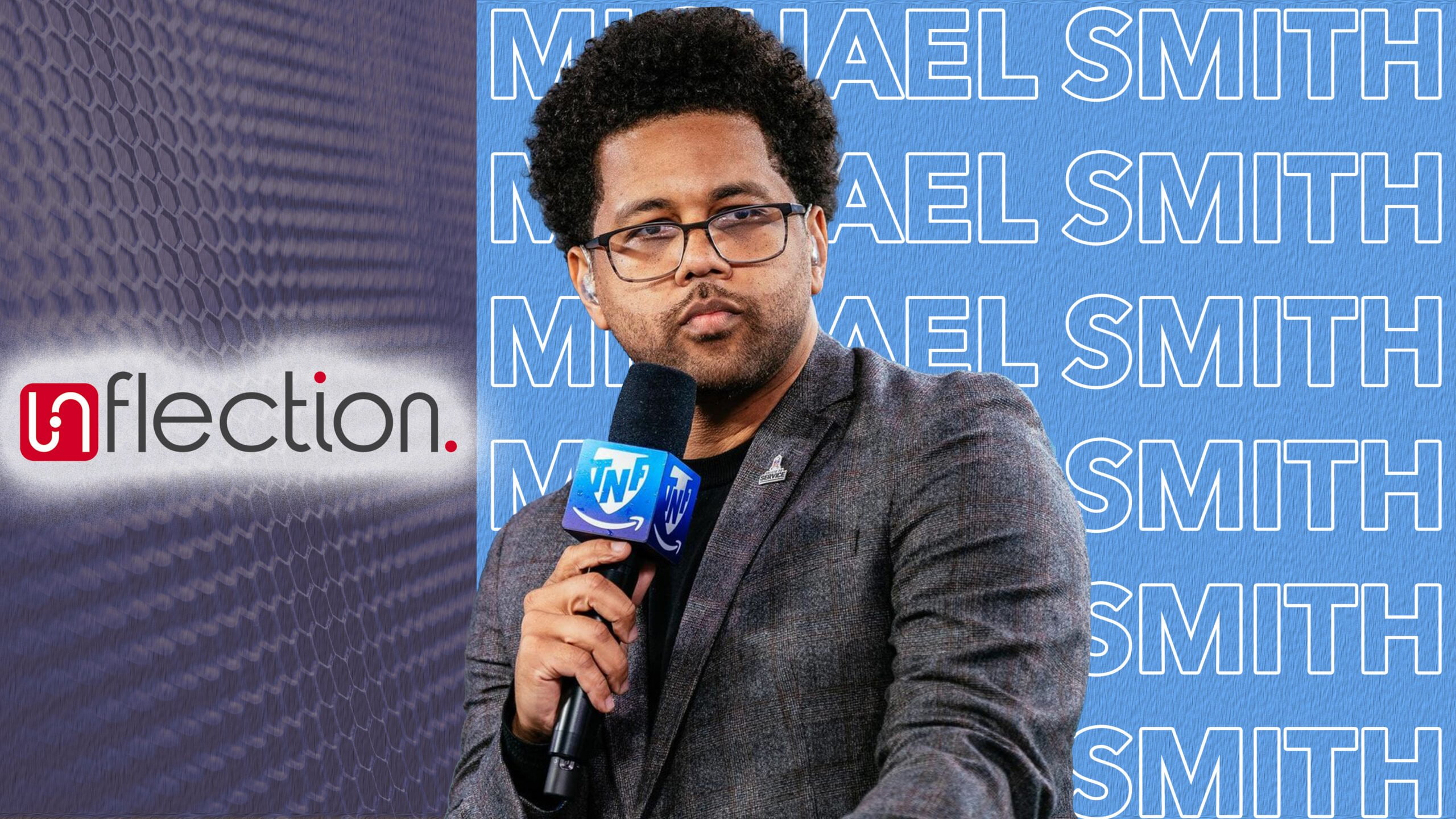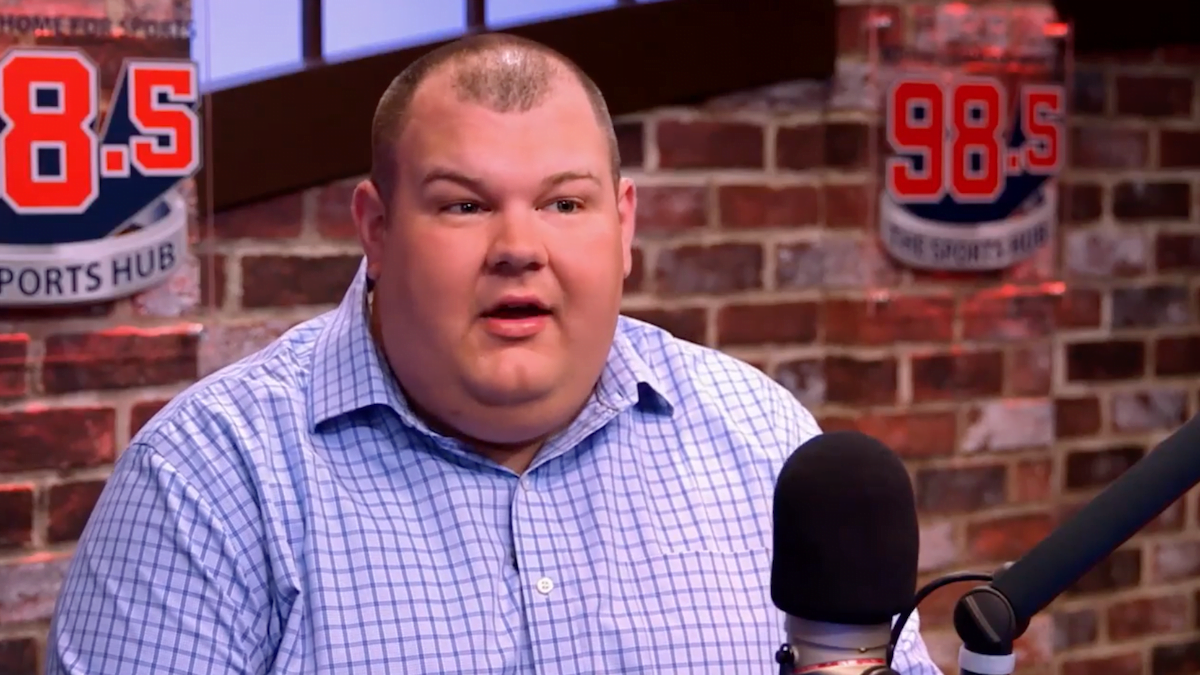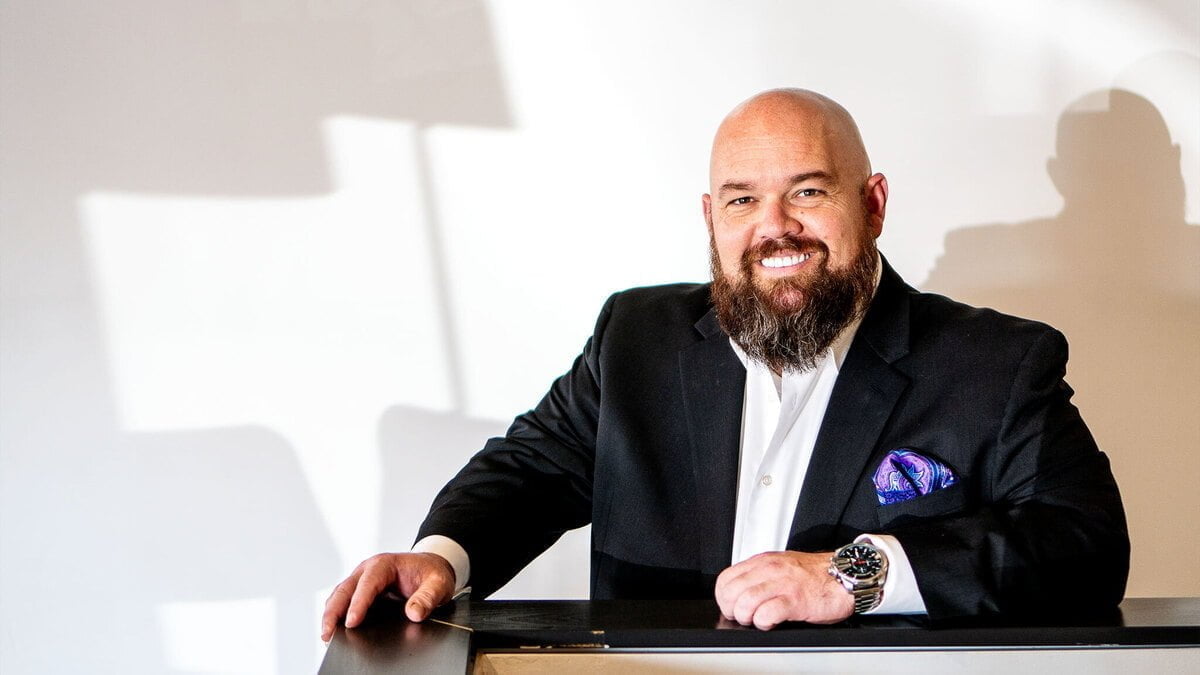The 18-month stretch from when Michael Smith learned that his edition of SportsCenter with Jemele Hill was being canceled to the time he reached a buyout with ESPN was pivotal in his career. When the network first branded the show, it stressed that it would differ from other SportsCenter programs in that it would explore the intersection of sports, culture and society. Upon its launch, Smith and Hill became the first Black duo to regularly host the program, but it quickly received a deluge of criticism from external viewers and those at the company. Social media users began calling the program “WokeCenter” and began to associate the “Worldwide Leader” with interpolating political discourse and commentary within a program that, at its core, pertains to sports.
Smith, however, knows that the show was ahead of its time and sees how other networks have used it as a template to create impactful programming. The duo added segments throughout the show that differed from what the audience was accustomed to, including unconventional interviews and whiparound discussions. Sports, to them, meant more than just reading the scores of the game or reviewing the Top 10 moments of the day.
“It was very difficult because I knew what we were doing, and I knew that the loudest voices and the loudest critics of what we were doing weren’t watching the show,” Smith said. “But they had different agendas – they had different political and social agendas – and they weren’t really watching what we were doing.”
While Hill began reporting for The Atlantic in early 2018 and reached a buyout with ESPN later that year, Smith’s future was somewhat in limbo. He recognized the power of the brand and took some time to ponder over what could be next. After all, Smith never intended to make it on television, instead studying journalism at Loyola University in New Orleans. There is a chance that none of it would have happened if not for the behest of his high school English teacher, who encouraged him to apply for an internship at The Times-Picayune.
“The business kind of found me more than I found it,” Smith said, “but once I did find it, I found a lot of joy in storytelling and being able to really examine the personalities and the processes behind the people and the teams that I cared about.”
All throughout college, Smith maintained a presence at The Times-Picayune while also contributing to his school publication as a sports editor. Eventually, Smith was brought on to work nights on The Times-Picayune’s copy desk as a night editor, which he feels gave him his best writing experience over his formative years. Cognizant of the invaluable aspect of being versatile, Smith also interned with the local CBS television station where he solely logged tape.
“I was a print major – that was my concentration – so I never thought about going into television, but even that internship with CBS while I was in college gave me some behind-the-scenes experience that turned out to be valuable,” Smith explained. “It also just allows you to meet people and connect with people. It’s not just for résumé purposes and not just even for reference purposes, but you just never know who you’re going to cross paths with again down the road.”
When it came time to graduate and find a full-time position, Smith had an advantage over others in that he had been galvanized to accrue deft professional experience as a student. Because he interned for two summers with The Boston Globe and, once again, left a good impression on the staff, he was offered a job to cover the New England Patriots. As an avid football fan, it was an opportunity Smith could not turn down – even if it meant he would be backing up one of the locale’s most prominent sportswriters.
Nick Cafardo was the primary Red Sox reporter for The Boston Globe and led coverage of the Patriots when the schedules did not overlap. Cafardo was unique in that he consistently demonstrated a sense of humility and worked with Smith rather than trying to bring him down.
“Not only did he welcome me on the Patriots beat; he made space for me and empowered me on the Patriots beat,” Smith said of Cafardo. “I liked to approach it every day like I was the beat guy, but I started out as his backup. He didn’t treat me like his backup at all; he empowered me to cover the beat and share it with him. I’ll never forget that.”
The future of local journalism as we know it is very much in a perilous state, accentuated by reporter layoffs and quarterly losses. The New York Times Company purchased The Athletic in early 2022, and it is now set to utilize it for all sports coverage in lieu of a dedicated section in The New York Times. Moreover, the Los Angeles Times announced that it is transitioning its sports section to resemble a magazine, focused on deeper storytelling rather than daily news. The industry is in the midst of a paradigm shift, which was evidenced from Smith’s first day at The Boston Globe that happened to coincide with its sales to The New York Times Company.
When Smith was a reporter, he quickly discerned how TV networks were beginning to equip print reporters to provide context and become parts of programming. His first television appearance came at just 23 years old on Around the Horn, the roundtable debate show hosted by Tony Reali. Smith was able to give his opinions on various topics and back them up with facts, which helped him appeal to the audience.
Since he dislikes the sound of his voice, Smith neglected to watch tape and instinctively knew where he needed to improve in order to have more chances to appear on television. It led to more opportunities on other ESPN programming, such as The Sports Reporters and E:60.
As Smith’s profile elevated at ESPN, the opportunities he received became even more prominent, culminating in hosting the 6 p.m. edition of SportsCenter with Hill. Upon that program’s cancellation though, he began to feel as if he was no longer valued or wanted at ESPN, which led to him negotiating a buyout and leaving the “Worldwide Leader.” The harrowing 18-month process induced sentiments of bitterness and uncertainty with a glimmer of hope clandestine beneath the surface.
“I always felt like a part of it, but to be ostracized and to be viewed internally, or at least it felt like I was, [as] radioactive was difficult,” Smith said. “At a certain point I was just like, ‘You know what? It’s time for me to take my career into my own hands and take back control of my own story and author a new chapter.’”
For the first time in his professional career, Smith was a bonafide free agent – and he was not necessarily looking to join a traditional media entity. Instead, Smith took steps towards becoming an entrepreneur, which started by joining two startup companies in different roles. He first joined (co)laboratory, a sports media content factory based in Los Angeles to oversee its content production and dissemination; however, the role only ended up lasting for seven weeks before complications forced the company to shutter.
The spin-off startup company, game1, made Smith one of its partners, along with film producer Basil Iwanyk and Greg Economou. Early on, the brand inked content partnerships with NBA all-star guard James Harden and famed racecar driver Danica Patrick, and it has since continued to produce distinct content. After about a year with the brand, Smith felt ready to start a new, independent media venture and grow it from scratch.
“I look at both of those startup experiences as successes personally because it taught me and showed me the ropes, more or less, on how to do this myself,” Smith said. “I’m not saying I have all the answers – by no means – but it gave me the perspective, the insight, the experience and confidence to go at it on my own and start my own company.”
Smith partnered with entertainment lawyer Terrence Williams and entrepreneur Dwayne Bernal to create Inflection Point Entertainment. The name of the company was deviated from the Henry Crown Fellowship Program within the Aspen Institute, which recruits classes of business and community leaders at inflection points in their lives and careers. Smith is a member of the 2017 class of the program and is using his experience to author a climax on the palisade of persistence, remaining prescient that his efforts will pay off in the long run.
By working independently, Smith is able to do what he feels is necessary to actualize groundbreaking, distinctive content offerings amid the crowded multimedia ecosystem. Within the company’s first year, it inked a development contract with NBCUniversal’s Peacock, producing original content through the company. Smith and co-host Michael Holley began the original series Brother From Another, which streams daily on Peacock and airs on SiriusXM.
“It’s podcasted; it has a loyal YouTube following as well, but that’s more a daily talk show; that’s more in the vein of a His and Hers [or] a Pardon the Interruption,” Smith said. “It’s more that type of show with obviously a different vibe because the vibe is a reflection of me and Michael’s relationship – our brotherhood; our friendship [and] our personalities, but it’s more of a news of the day show since it’s five days a week.”
The company is beginning to see the fruits of its labor through a new partnership with iHeartMedia that launched the new Inflection Network, which features a variety of different podcast offerings ranging from fantasy football to resiliency. Charita Johnson, the former producer of the His and Hers podcast at ESPN, is leading the network, which will soon add new personalities and programs to its content lineup. For Smith, the partnership was a “no-brainer” in being able to expedite broader distribution of content and enable people to express themselves. Just as Cafardo did for him in Boston, he wants to provide opportunities for the proliferation of the space and demonstrate his magnanimity towards media’s progeny.
“I felt like it was just a natural piece of the portfolio [and] a natural vertical for this company to have,” Smith said. “We’re making feature films; we’re making scripted television series [and] we’re making documentaries. Audio content felt like just a natural play, and it’s something that I always wanted to do as a talent, which was to identify and nurture up-and-coming talent and amplify other voices that just needed the platform.”
Inflection Point Entertainment views the deal with iHeartMedia as a monumental moment in the growth of its business. The challenge in delivering consistent, premium content is in identifying a target audience and providing a valuable return on investment, expanding the metaphorical consumption profit margin. Smith and his company have eclectic interests and passions, and the evolving identity will define the scope of the undertaking.
“I’m not out to be all things to all people – that’s impossible – you can’t please all the people all the time,” Smith said. “I don’t want to be a ‘Walmart’ podcast network where everything’s under this one roof. I also didn’t want to be so specific to where I was not only putting myself in a box, but limiting both our audience and our opportunities in terms of who we work with.”
Over the course of Smith’s journalism career, his storytelling has become more nuanced and enterprised, a more deficient area than instant news reporting. It is one of the reasons he began contributing to Football Night in America on NBC last season through his series, “Gets It.” Smith, who is continuing the project for a second season, interviews NFL players, coaches and personnel who he feels “gets it,” as the name of the show indicates. He believes that the name of the show is one of the greatest compliments that can be given to sports luminaries, many of whom have consistently tried to find their own way and build a successful foundation.
“People have an insatiable appetite for information, insight and enlightenment,” Smith said. “They want to be entertained and they may not have the same level of attention span as they once did… but they still want the information.”
While helping to grow his company, Smith continued to rekindle his presence with larger media entities over the course of the last year. Ahead of its launch of Thursday Night Football, Smith signed on with Amazon Prime Video to work as a correspondent for its pregame, halftime and postgame coverage. When he first met his colleagues, he could tell that they shared a common understanding and dedication to help grow the streaming giant’s sports footprint and bring it to new heights.
In the weeks leading up to its second season on Amazon Prime Video, the NFL convened a meeting with broadcasters, producers and executives to discuss rule changes and areas of emphasis for the upcoming campaign. For its part, Amazon reviewed its performance from last season as it gears up to embark on the inaugural Black Friday game and utilizes its new flex scheduling ability, both of which are affirmations of the league’s belief in the platform. After one of the meetings, an Amazon executive told everyone, “We haven’t done shit. This is a new year,” emblematic of the collective mindset among those involved.
“It felt familiar and familial,” Smith said of the seminars. “It was like a bunch of rookies who were now going into season two or year two. Everybody’s got their feet underneath them, [and] you can just see the confidence; you could see the chemistry [and] the potential for big things in year two now that we aren’t introducing ourselves to one another.”
Success in the industry is often judged by advertising revenue and web traffic, and while Smith understands how fundamental quantitative metrics are, it is not the reason he began working in the field. He is as dedicated to developing relationships with sources and getting to the truth as he has ever been. Standing by these bedrock principles allowed him to be more than just a reporter or a pundit in the background.
“I didn’t want to be limited by the imagination, the vision or lack thereof of somebody in some corner office,” Smith said. “I wanted to be able to not only be in control of my own story, but tell stories the way I wanted to tell them [and] own my… intellectual property as best I could.”
Inflection Point Entertainment has rapidly flourished from an idea to an investment, and its management team is poised to maintain its upward trajectory. Smith desires to be an architect and foster a place through which people can turn the corner and thrive through tergiversation and disquietude. By embracing the process of constructing a viable infrastructure, he is leading a new story where he, munificently, does not view himself as its main character. In this space, however, Smith is able to share his vision for the future to ensure that the company falls outside of the 90% of startup businesses that fail. Instead, he is focused on attaining an opulence of content and chorus of unique voices.
“I want [it] to be something that provides not only entertainment, enlightenment, information or insight to its audiences and its consumers, but I want it to be a platform for people,” Smith elucidated. “I want it to be something that tells stories the way that they need to be told for the people that need to hear them and see them.”
Derek Futterman is an associate editor and sports media reporter for Barrett Media. Additionally, he has worked in a broad array of roles in multimedia production – including on live game broadcasts and audiovisual platforms – and in digital content development and management. He previously interned for Paramount within Showtime Networks, wrote for the Long Island Herald and served as lead sports producer at NY2C. To get in touch, email Derek@BarrettMedia.com or find him on X @derekfutterman.









